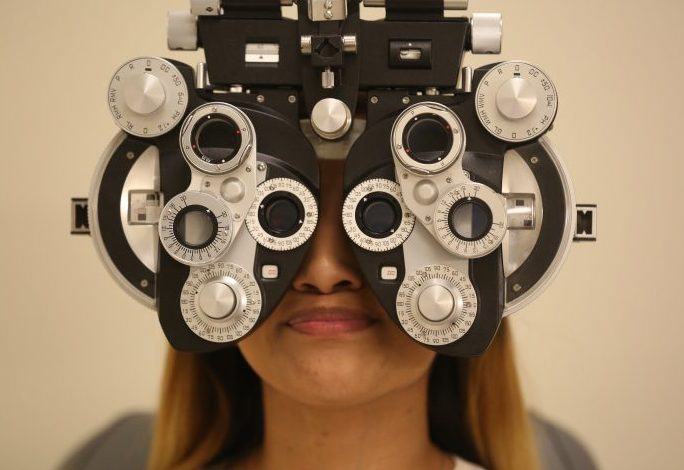Your Vision
Even if you never needed glasses or contacts before, you may notice problems with your vision–your eyesight–in your teenage years. Your ability to read and study is directly affected by how well you can see. The print you have to read is a lot smaller than it was when you were in elementary school. And it’s hard to play sports if you can’t see the ball or your depth perception is off. Sometimes young people are even labeled as having ADHD when they actually have an untreated vision problem, because some of the signs and symptoms are the same.
Some signs you might need glasses include:
- Frequent headaches
- Squinting
- Rubbing your eyes
- Nausea or feeling tired
- Sitting too close to a computer screen or having trouble seeing the screen on your phone
- Having trouble reading/focusing
The most common vision problem is nearsightedness or myopia, according to the American Optometric Association. Some young people have other problems like farsightedness or astigmatism. The good news is, corrective lenses, either glasses or contact lenses, can help you see more clearly.
Get an Eye Exam
The best thing you can do to take care of your eyes is to get an eye exam. An eye exam is carried out by an optometrist, who is trained to examine eyes, test sight, and prescribe glasses or contact lenses, or an ophthalmologist, a medical or osteopathic doctor who specializes in eye and vision care and can treat a broad range of eye problems. Your eye doctor will test your eyes to see if you need glasses or contact lenses to improve your vision. There will also be other tests to make sure your eyes are healthy and functioning well. Don’t worry, an eye exam doesn’t hurt! It usually lasts 20 to 30 minutes.
Protective Eyewear
If you play sports, you may need protective eyewear or a face mask. Regular glasses or sunglasses can’t protect your eyes from flying balls or elbows! Sports-related injuries happen most frequently in baseball, basketball and racquet sports, according to the American Academy of Ophthalmology. In baseball, ice hockey and men’s lacrosse, a helmet with a polycarbonate face mask or wire shield will protect you. Protective eyewear with polycarbonate lenses are the best choice for basketball, racquet sports, soccer and field hockey.
Eye Care Can Be Affordable
If you need help with the cost of getting eye care or glasses, there are several ways to make good eye care affordable. Children and adolescents enrolled in Medicaid are entitled to vision screening. Many optical stores accept Medicaid and offer eye exams. The Children’s Health Insurance Program (CHIP) is a state and federal program that provides low-cost health insurance coverage for children and teens in families whose income is too much to qualify for Medicaid but who can’t afford to buy health insurance. CHIP varies from state to state. Your parents can call 1-877 KIDS NOW (1-877-543-7669) or visit InsureKidsNow.gov to see if you are eligible for CHIP or Medicaid coverage.
Sight for Students, a Vision Service Plan (VSP) program, provides free eye exams and glasses to uninsured children and teenagers who qualify. Click here for more information.
If you are 10-22 years old and live in New York City, you can get free eye exams and optical care at Mount Sinai Adolescent Health Center. Cohen’s Fashion Optical generously donates our optical care, including free glasses. Call 212-423-3000 to make an appointment.
Other Resources
This information is not intended to provide medical advice, professional diagnosis, opinion, treatment or services, only general information for education purposes only.


